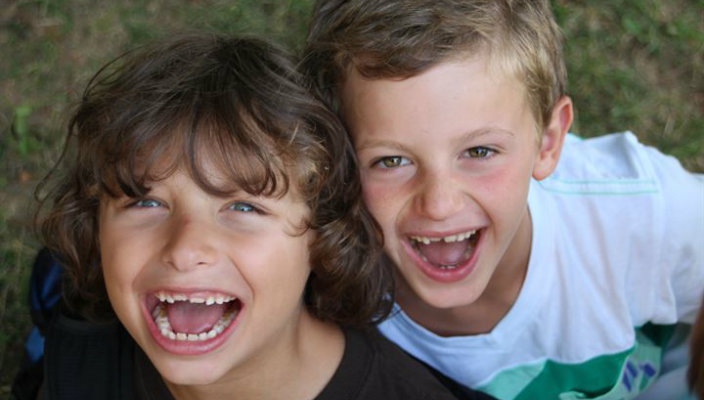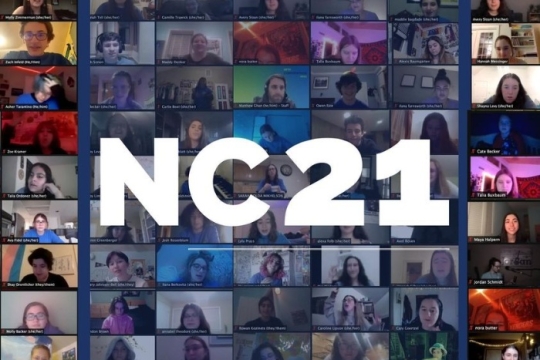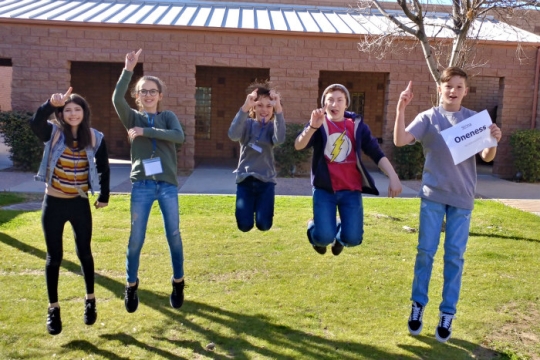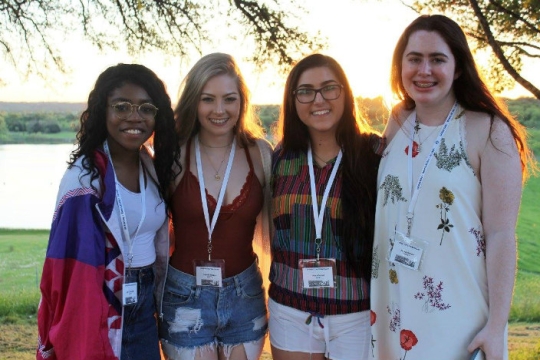
This fall, Congregation Sinai in Milwaukee, Wisconsin, is launching a new family education program called “Shabbat Shelanu: A Shared Shabbat Experience.” The name Shabbat Shelanu translates to “our Shabbat,” encompassing the idea that the experience is for everyone.
Creating Shabbat Shelanu wasn’t our original plan. However, during our early work in the B’nai Mitzvah Revolution (BMR), we realized that we were emphasizing family involvement only in the lead up to B’nai Mitzvah. Therefore, we decided to expand our entire family education program.
To accomplish this tremendous task, our team of professionals and lay leaders agreed to take the following steps:
- Take a full year to develop a new program before launching it.
- Make our religious school faculty a key group in the decision-making process.
- Provide our faculty with professional learning about family education.
- Research and examine models in congregations similar to ours.
- Solicit feedback from parents throughout the planning process.
Setting aside time for program development
Our teachers became excited to work together in ways they hadn’t before. Their creativity in designing potential ideas for the program brought a new spark to their passion for educating our youth and families.
We discovered in our brainstorming that every faculty member saw Shabbat as a significant aspect of family engagement. When I shared this insight with the parents, they agreed that it was a natural time for families to come together, but they also raised a concern about having to accommodate additional time commitments in their families’ already overloaded schedules.
The structure we came up with for Shabbat Shelanu includes six family education sessions throughout the school year: two on Friday evenings, two on Saturday mornings, and two on Saturday evenings for Havdallah. To address the feedback we received from parents, we agreed that on weekends with a Shabbat family program, we will not have religious school on Sunday. This way, we are not asking families to devote more time in their overextended schedules, but rather, that they shift the day for their religious school commitment six times a year.
Creating meaningful content
Shabbat Shelanu is structured so that each session builds upon the others, but is also self-contained so that if a family misses a session, they can jump back into the next one. The faculty created a framework, and with grant money from our local Coalition for Jewish Learning, we hired a consultant to write the first year of curriculum.
We determined the best way to ensure long-term impact for our families would be to focus on value-based education. The topic for our first session, taking place during selichot, is “Knowing One’s Self.” Participants will be able to self-assess and then families will discuss how they can support one another as each family member works toward self-improvement in 5777. We will also include ritual learning around selichot, community building time during a Seudat Shlishit, and a Havdalah service that the families will help create.
Other sessions of Shabbat Shelanu will focus on topics such as: moderation, relationships with others, the value of study, life balance, and having a good heart. We will create additional years of curriculum that will run in a cycle, so that families can return to a topic several years later and look at it differently than they did the first time they encountered it. The faculty is also planning to align their religious school lessons with Shabbat Shelanu curriculum when possible. Finally, we want to offer adult classes for parents to learn about a topic before engaging with it during family programming.
Looking ahead: goals and evaluation
We hope that over time, Shabbat Shelanu will bring together not only religious school families, but also families whose children and teens are currently less engaged. We want to inspire learning beyond the religious school classroom, and for our youth to recognize that Jewish learning isn’t meant to stop at the age of B’nai Mitzvah, but rather, that they can continue to enrich their daily lives in relevant ways through the study of Torah. If we are successful, our families will become more invested in ongoing learning, and more connected with one another and with the congregation.
To measure the success of our new program, we will have follow-up questionnaires and focus group conversations to determine if families are finding meaning in the experience, and to evaluate what changes we might need to make along the way.
There is great excitement about the launch of Shabbat Shelanu and the opportunity for families to learn and explore Judaism together. We anticipate that as we help our families prioritize Jewish learning, our youth will develop a strong and lasting sense of responsibility toward Jewish life and community, and will continue to engage well beyond becoming B’nai Mitzvah.
Barbara Shimansky, RJE, has served as the Director of Education at Congregation Sinai in Milwaukee, WI since 2012. She has extensive experience working with youth of all ages and their families as both a social worker and a Jewish educator. Barb has served on the summer faculty of the URJ Kutz Camp and URJ Olin-Sang-Ruby Union Institute. She also holds a leadership position with the Association of Reform Jewish Educators. Barb is a Michigan State Spartan who went on to earn a Master of Social Work degree from Wayne State University in 2002, and a Master of Arts in Religious Education from Hebrew Union College-Jewish Institute of Religion in 2016 as a member of the fourth cohort of the Executive Masters program.
Have something to say about this post? Join the conversation in The Tent, the social network for congregational leaders of the Reform Movement. You can also tweet us or tell us how you feel on Facebook.
Related Posts

Connecting During COVID: NFTY Convention 2021

"Like Dawn Skimming the Horizon": Riding the Changes in NFTY (Part 2)
